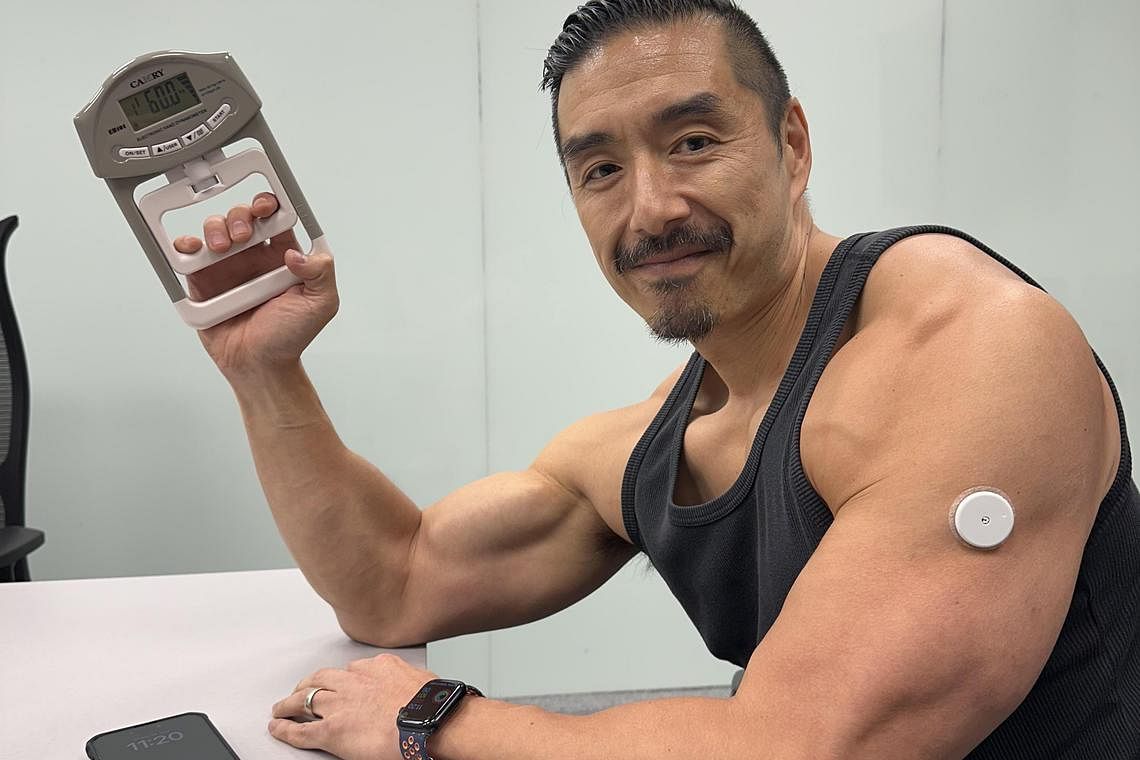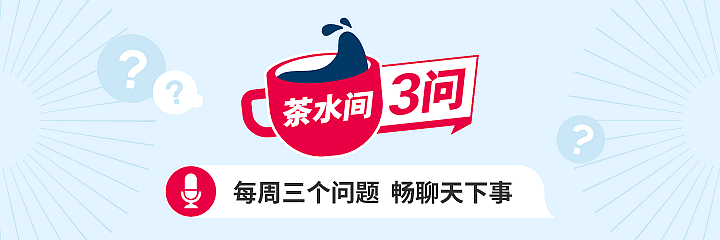Note: According to the Singapore Health Promotion Board, a Healthy BMI is greater than18.5 and less than 23.0. A BMI less than 18.5 would mean that the individual is at risk of nutrition deficiency diseases and osteoporosis.
A BMI equal or greater than 23.0 would mean that the individual is at risk of obesity-related diseases. (Ref: DD-Md2022J28)
As of 2024-09-28,
Note: ### indicates BMI = 23 or > 23
Total number of Monthly Weight monitored was 208 (100%)
The no. of times my healthy BMI between 18.5 and 22.9 was 203 (97.596%)
The no. of times my unhealthy BMI equal or more than 23.000 was 5 (2.404%)
=======================
2007
2007-05-28 morning, my weight = 65.0 kg, BMI = 23.588###
2007-06-28 morning, my weight = 61.0 kg, BMI = 22.136
2007-07-28 morning, my weight = 59.0 kg, BMI = 21.410
2007-08-28 morning, my weight = 58.7 kg, BMI = 21.302
2007-09-28 morning, my weight = 57.5 kg, BMI = 20.866
2007-10-28 morning, my weight = 57.5 kg, BMI = 20.866
2007-11-28 morning, my weight = 56.2 kg, BMI = 20.394
2007-12-28 morning, my weight = 55.5 kg, BMI = 20.140
2008
2008-01-28 morning, my weight = 54.8 kg, BMI = 19.886
2008-02-28 morning, my weight = 54.8 kg, BMI = 19.886
2008-03-28 morning, my weight = 54.5 kg, BMI = 19.777
2008-04-28 morning, my weight = 54.4 kg, BMI = 19.741
2008-05-28 morning, my weight = 54.1 kg, BMI = 19.632
2008-06-28 morning, my weight = 54.6 kg, BMI = 19.814
2008-07-28 morning, my weight = 54.5 kg, BMI = 19.777
2008-08-28 morning, my weight = 54.3 kg, BMI = 19.705
2008-09-28 morning, my weight = 54.9 kg, BMI = 19.923
2008-10-28 morning, my weight = 55.3 kg, BMI = 20.068
2008-11-28 morning, my weight = 54.5 kg, BMI = 19.777
2008-12-28 morning, my weight = 55.6 kg, BMI = 20.177
2009
2009-01-28 morning, my weight = 54.8 kg, BMI = 19.886
2009-02-28 morning, my weight = 55.9 kg, BMI = 20.285
2009-03-28 morning, my weight = 54.8 kg, BMI = 19.886
2009-04-28 morning, my weight = 55.3 kg, BMI = 20.068
2009-05-28 morning, my weight = 55.4 kg, BMI = 20.104.
2009-06-28 morning, my weight = 55.2 kg, BMI = 20.031
2009-07-28 morning, my weight = 55.1 kg, BMI = 19.995
2009-08-28 morning, my weight = 55.2 kg, BMI = 20.031
2009-09-28 morning, my weight = 56.3 kg, BMI = 20.431
2009-10-28 morning, my weight = 55.8 kg, BMI = 20.249
2009-11-28 morning, my weight = 56.2 kg, BMI = 20.394
2009-12-28 morning, my weight = 56.1 kg, BMI = 20.358
2010
2010-01-28 morning, my weight = 55.6 kg, BMI = 20.177
2010-02-28 morning, my weight = 56.5 kg, BMI = 20.503
2010-03-28 morning, my weight = 56.4 kg, BMI = 20.467
2010-04-28 morning, my weight = 55.7 kg, BMI = 20.213
2010-05-28 morning, my weight = 55.1 kg, BMI = 19.995
2010-06-28 morning, my weight = 56.4 kg, BMI = 20.467
2010-07-28 morning, my weight = 55.5 kg, BMI = 20.140
2010-08-28 morning, my weight = 55.8 kg, BMI = 20.249
2010-09-28 morning, my weight = 55.8 kg, BMI = 20.249
2010-10-28 morning, my weight = 55.4 kg, BMI = 20.104
2010-11-28 morning, my weight = 55.6 kg, BMI = 20.177
2010-12-28 morning, my weight = 55.5 kg, BMI = 20.140
2011
2011-01-28 morning, my weight = 55.4 kg, BMI = 20.104
2011-02-28 morning, my weight = 56.5 kg, BMI = 20.503
2011-03-28 morning, my weight = 55.6 kg, BMI = 20.177
2011-04-28 morning, my weight = 55.7 kg, BMI = 20.213
2011-05-28 morning, my weight = 55.6 kg, BMI = 20.177
2011-06-28 morning, my weight = 56.3 kg, BMI = 20.431
2011-07-28 morning, my weight = 56.5 kg, BMI = 20.503
2011-08-28 morning, my weight = 56.9 kg, BMI = 20.649
2011-09-28 morning, my weight = 56.2 kg, BMI = 20.394
2011-10-28 morning, my weight = 56.8 kg, BMI = 20.613
2011-11-28 morning, my weight = 59.0 kg, BMI = 21.410
2011-12-28 morning, my weight = 60.3 kg, BMI = 21.882
2012
2012-01-28 morning, my weight = 61.5 kg, BMI = 22.318
2012-02-28 morning, my weight = 62.7 kg, BMI = 22.753
2012-03-28 morning, my weight = 62.5 kg, BMI = 22.681
2012-04-28 morning, my weight = 61.3 kg, BMI = 22.246
2012-05-28 morning, my weight = 60.7 kg, BMI = 22.028
2012-06-28 morning, my weight = 60.6 kg, BMI = 21.992
2012-07-28 morning, my weight = 61.2 kg, BMI = 22.209
2012-08-28 morning, my weight = 60.8 kg, BMI = 22.064
2012-09-28 morning, my weight = 61.5 kg, BMI = 22.318**
2012-10-28 morning, my weight = 62.3 kg, BMI = 22.608
2012-11-28 morning, my weight = 63.4 kg, BMI = 23.008###
2012-12-28 morning, my weight = 62.9 kg, BMI = 22.826
2013
2013-01-28 morning, my weight = 63.0 kg, BMI = 22.863
2013-02-28 morning, my weight = 62.1 kg, BMI = 22.536
2013-03-28 morning, my weight = 61.5 kg, BMI = 22.318
2013-04-28 morning, my weight = 63.1 kg, BMI = 22.899****
2013-05-28 morning, my weight = 62.3 kg, BMI = 22.608
2013-06-28 morning, my weight = 62.2 kg, BMI = 22.572
2013-07-28 morning, my weight = 62.4 kg, BMI = 22.645
2013-08-28 morning, my weight = 62.6 kg BMI = 22.717
2013-09-28 morning, my weight = 62.4 kg BMI = 22.645**
2013-10-28 morning, my weight = 62.3 kg BMI = 22.609
2013-11-28 morning, my weight = 63.1 kg BMI = 22.899
2013-12-28 morning, my weight = 64.4 kg BMI = 23.371###
2014
2014-01-28 morning, my weight = 63.6 kg, BMI = 23.080###
2014-02-28 morning, my weight = 63.3 kg, BMI = 22.971
2014-03-28 morning, my weight = 62.7 kg, BMI = 22.753
2014-04-28 morning, my weight = 62.7 kg, BMI = 22.753
2014-05-28 morning, my weight = 62.9 kg, BMI = 22.826
2014-06-28 morning, my weight = 63.1 kg BMI = 22.899
2014-07-28 morning, my weight = 62.7 kg, BMI = 22.753
2014-08-28 morning, my weight = 62.2 kg, BMI = 22.572
2014-09-28 morning, my weight = 61.2 kg, BMI = 22.209
2014-10-28 morning, my weight = 61.4 kg, BMI = 22.282
2014-11-28 morning, my weight = 60.2 kg, BMI = 21.846
2014-12-28 morning, my weight = 60.8 kg, BMI = 22.064
2015
2015-01-28 morning, my weight = 61.3 kg, BMI = 22.246
2015-02-28 morning, my weight = 61.8 kg, BMI = 22.427
2015-03-28 morning, my weight = 61.8 kg, BMI = 22.427
2015-04-28 morning, my weight = 62,5. kg, BMI = 22.681
2015-05-28 morning, my weight = 62.4 kg, BMI = 22.645
2015-06-28 morning, my weight = 63.6 kg, BMI = 23.080###
2015-07-28 morning, my weight = 62.3 kg BMI = 22.609
2015-08-28 morning, my weight = 62.2 kg, BMI = 22.572
2015-09-28 morning, my weight = 63.0 kg, BMI = 22.863
2015-10-28 morning, my weight = 63.2 kg, BMI = 22.935
2015-11-28 morning, my weight = 62.6 kg, BMI = 22.717
2015-12-28 morning, my weight = 62.3 kg BMI = 22.609
2016
2016-01-28 morning, my weight = 63.0 kg, BMI = 22.863
2016-02-28 morning, my weight = 62.8 kg, BMI = 22.790
2016-03-28 morning, my weight = 62.0 kg, BMI = 22.499
2016-04-28 morning, my weight = 62.0 kg, BMI = 22.499
2016-05-28 morning, my weight = 62.4 kg, BMI = 22.645
2016-06-28 morning, my weight = 62.1 kg, BMI = 22.536
2016-07-28 morning, my weight = 62.2 kg, BMI = 22.572
2016-08-28 morning, my weight = 62.6 kg, BMI = 22.717
2016-09-28 morning, my weight = 62.8 kg, BMI = 22.790
2016-10-28 morning, my weight = 62,5. kg, BMI = 22.681
2016-11-28 morning, my weight = 62.1 kg, BMI = 22.536
2016-12-28 morning, my weight = 62.3 kg, BMI = 22.608
2017
2017-01-28 morning, my weight = 62.9 kg, BMI = 22.826
2017-02-28 morning, my weight = 62.4 kg, BMI = 22.644
2017-03-28 morning, my weight = 62.8 kg, BMI = 22.789
2017-04-28 morning, my weight = 62.3 kg, BMI = 22.609
2017-05-28 morning, my weight = 62.2 kg, BMI = 22.572
2017-06-28 morning, my weight = 62.6 kg, BMI = 22.717
2017-07-28 morning, my weight = 62.4 kg, BMI = 22.645
2017-08-28 morning, my weight = 61.9 kg, BMI = 22.463
2017-09-28 morning, my weight = 62.0 kg, BMI = 22.499
2017-10-28 morning, my weight = 62.0 kg, BMI = 22.499
2017-11-28 morning, my weight = 61.5 kg, BMI = 22.318
2017-12-28 morning, my weight = 61.5 kg, BMI = 22.318
2018
My Weight 2018-01-28 0934 hr 61.0 kg BMI 22.136
My Weight 2018-02-28 0915 hr 60.7 kg BMI 22.027
My Weight 2018-03-28 0620 hr 61.0 kg BMI 22.136
My Weight 2018-04-28 1005 hr 61.7 kg BMI 22.390
My Weight 2018-05-28 0856 hr 60.5 kg BMI 21.955
My Weight 2018-06-28 0600 hr 61.4 kg BMI 22.281
My Weight 2018-07-28 0600 hr 62.2 kg BMI 22.572
My Weight 2018-08-28 0720 hr 61.4 kg BMI 22.281
My Weight 2018-09-28 0805 hr 62.1 kg BMI 22.535
My Weight 2018-10-28 0750 hr 61.3 kg BMI 22.24
My Weight 2018-11-28 1000 hr 61.5 kg BMI 22.318
My Weight 2018-12-28 0650 hr 62.5 kg BMI 22.681
2019
2019-01-28 at 1000 hr 60.9 kg BMI 22.100
2019-02-28 at 0946 hr 61.0 kg BMI 22.136
2019-03-28 at 0700 hr 62.4 kg BMI 22.644
2019-04-28 at 0828 hr 62.9 kg BMI 22.826
2019-05-28 at 0745 hr 62.4 kg BMI 22.826
2019-06-28 at 0650 hr 62.4 kg BMI 22.644
2019-07-28 at 0736 hr 62.8 kg BMI 22.789
2019-08-28 at 0629 hr 62.4 kg BMI 22.644
2019-09-28 at 0644 hr 61.9 kg BMI 22.463
2019-10-28 at 0740 hr 62.5 kg BMI 22.681
2019-11-28 at 0632 hr 62.8 kg BMI 22.789
2019-12-28 at 0726 hr 62.5 kg BMI 22.681
2020
My Weight 2020-01-28 0625 HR 62.6 kg BMI 22.717
My Weight 2020-02-28 0728 HR 62.3 kg BMI 22.608
My Weight 2020-03-28 0649 HR 61.4 kg BMI 22.281
My Weight 2020-04-28 0810 HR 62.0 kg BMI 22.499
My Weight 2020-05-28 0714 HR 62.3 kg BMI 22.608
My Weight 2020-06-28 0757 HR 60.2 kg BMI 21.846
My Weight 2020-07-28 0715 HR 61.6 kg BMI 22.354
My Weight 2020-08-28 0707 HR 61.1 kg BMI 22.173
My Weight 2020-09-28 0609 HR 60.8 kg BMI 22.064
My Weight 2020-10-28 0818 HR 60.7 kg BMI 22.027
My Weight 2020-11-28 0706 HR 60.9 kg BMI 22.100
My Weight 2020-12-28 0631 HR 60.5 kg BMI 21.955
2021
My Weight 2021-01-28 0638 HR 61.3 kg BMI 22.245
My Weight 2021-02-28 0741 HR 61.2 kg BMI 22.209
My Weight 2021-03-28 0659 HR 61.3 kg BMI 22.245
My Weight 2021-04-28 0659 HR 61.1 kg BMI 22.173
My Weight 2021-05-28 0618 HR 61.1 kg BMI 22.173
My Weight 2021-06-28 0604 HR 61.3 kg BMI 22.245
My Weight 2021-07-28 0642 HR 61.2 kg BMI 22.209
My Weight 2021-08-28 0653 HR 61.5 kg BMI 22.318
My Weight 2021-09-28 0618 HR 61.5 kg BMI 22.318
My Weight 2021-10-28 0549 HR 61.0 kg BMI 22.136
My Weight 2021-11-28 0630 HR 61.3 kg BMI 22.245
My Weight 2021-12-28 0528 HR 61.6 kg BMI 22.354
======================================
2022
My Weight 2022-01-28 0910 HR 61.1 kg BMI 22.173
My Weight 2022-02-28 0642 HR 61.2 kg BMI 22.209
My Weight 2022-03-28 0649 HR 61.4 kg BMI 22.281
My Weight 2022-04-28 0649 HR 61.4 kg BMI 22.281
My Weight 2022-05-28 0549 HR 61.0 kg BMI 22.136
My Weight 2022-06-28 0549 HR 61.0 kg BMI 22.136
My Weight 2022-07-28 0700 HR 60.6 kg BMI 21.991
My Weight 2022-08-28 0640 HR 61.3 kg BMI 22.245
My Weight 2022-09-28 0738 HR 61.7 kg BMI 22.390
My Weight 2022-10-28 0708 HR 61.5 kg BMI 22.318
My Weight 2022-11-28 0706 HR 60.9 kg BMI 22.100
My Weight 2022-12-28 0722 HR 61.1 kg BMI 22.173
========
2023
My Weight 2023-01-28 0537 HR 60.9 kg BMI 22.100
My Weight 2023-02-28 0515 HR 61.4 kg BMI 22.281
My Weight 2023-03-28 0606 HR 61.3 kg BMI 22.245
My Weight 2023-04-28 0738 HR 61.3 kg BMI 22.245
My Weight 2023-05-28 0721 HR 61.0 kg BMI 22.136
My Weight 2023-06-28 0641 HR 61.2 kg BMI 22.209
My Weight 2023-07-28 0700 HR 60.9 kg BMI 22.100
My Weight 2023-08-28 0655 HR 61.3 kg BMI 22.245
My Weight 2022-09-28 0738 HR 61.7 kg BMI 22.390
My Weight 2022-10-28 0708 HR 61.5 kg BMI 22.318
My Weight 2023-11-28 0612 HR 61.4 kg BMI 22.281
My Weight 2023-12-28 0734HR 61.3 kg BMI 22.245
========
2024
My Weight 2024-01-28 0734 HR 61.3 kg BMI 22.245
My Weight 2024-02-28 0510 HR 61.6 kg BMI 22.354
My Weight 2024-03-28 0642 HR 60.9 kg BMI 22.100
My Weight 2024-04-28 0721 HR 61.1 kg BMI 22.173
My Weight 2024-05-28 0537 HR 61.3 kg BMI 22.245
My Weight 2024-06-28 0651 HR 61.5 kg BMI 22.318
My Weight 2024-07-28 0612 HR 61.4 kg BMI 22.281
My Weight 2024-08-28 0747 HR 61.1 kg BMI 22.173
My Weight 2024-09-28 0640 HR 61.1 kg BMI 22.173
=======================================
Note:
My current BMI is within the healthy range of 18.5 to 22.9.
For me, the range of healthy weight is 50.9786 kg (BMI = 18.5) to 63.10324 kg (BMI = 22.9).
People with BMI values of 23 kg/m2 (or 25 kg/m2 according to some sources) and above have been found to be at risk of developing heart disease and diabetes.
To be healthy, I must have a healthy weight.
Be as lean as possible without being underweight, as recommended by World Cancer Prevention Foundation, United Kingdom.
=================================
Note: On 2021-05-28, I removed the unimportant details of old records from My Weight Management Records.
=================================
Ref. WeightManagement



































